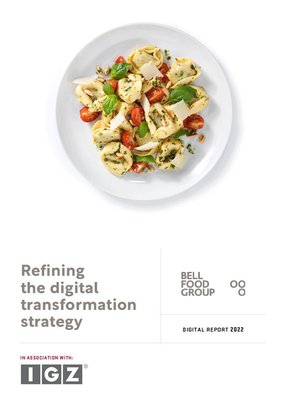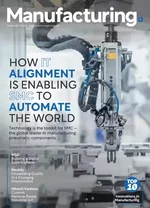A passionate manager with almost 20 years of experience in telecommunications, enterprise architecture, and organisational development, Sven Friedli, CIO of Bell Food Group studied Computer Science and Business Economics at the University of Applied Science in Bern. Following his studies, Friedli worked for a startup in software development and later in his career in several roles at Swisscom.
“In my career at Swisscom, I learned a lot about managing and delivering IT projects and telco services as well as steering the IT strategy and enterprise architecture of the company.
Today, I lead the IT of Bell Food Group, and I am responsible for ensuring stable IT operation for our production plants, networks, data centres and digital processes. This is quite a challenge with all our locations spread over Europe. My job is to push the digitalisation of the company and to show the business the value of new technologies and opportunities that we can bring to the business, how we can automate our processes and find new business opportunities,” says Friedli.
The digital transformation journey so far…
When we last spoke to Friedli, Bell Food Group was at the start of its digital transformation, since then the company has completed its initial strategy and is now fine-tuning its results.
“In the last year, I have learnt more about our main challenges and priorities as a business. So as part of our strategy, I had four pillars that I focused on. The first is the standardisation of our infrastructure and application to control and gradually simplify the complexity of our environment. The second priority is increasing productivity and processes. So we have to optimise our enterprise resource planning (ERP) system landscapes, introducing manufacturing execution systems (MES), adopting new cloud technologies with artificial intelligence (AI) and machine learning (ML) components. We use these technologies to improve our product quality and optimise our daily processes.
“The third is to create value for our employees to collaborate together without boundaries and ensure they are properly informed. The Microsoft 365 product range and our communication platform, called Beekeeper, will have an important role in helping us on our journey. Finally, continuous improvement and optimisation of our processes and infrastructure to ensure that our downtimes and disruptions are as low as possible."
Some of the main achievements made by Bell Food Group include implementing SAP S4 HANA into all processes including finance, controlling, production, logistics, and planning in June 2021 for Bell Switzerland.
“We first tried this in Easter, but we faced some issues, mostly around communication with our endpoint devices, to not risk our production, we had to roll back the implementation. I am really proud of my team that they have not lost heart after this failure. We further optimised the migration, conducted more tests so that two months later we had a much smoother rollout,” comments Friedli.
Another achievement for the group includes the rollout of a new ERP implementation with CSB at Eisberg Switzerland. With a great combined effort from key users, the infrastructure team, the management and the CSB project team, Bell Food Group successfully, after two years, introduced the ERP system in November.
“We have in total 63 locations spread across 15 countries, and we’re on the last steps to harmonise our MPLS network over the entire group,” says Friedli. “We have also launched a pilot with Beekeeper. With this platform, our trainees can collaborate and communicate together. We are now ready to scale this platform out to other parts of the company, to also reach out to our first line workers with digital information. We will be able to provide personal planning, site information, achievements, and much more information via their mobile device or on digital screens at the plant.
“With Microsoft and Accenture we are introducing a new workplace strategy based on Microsoft 365 technology, right now we are moving all our exchange mailboxes to the cloud. Finally, we are also in the last stages of introducing an MES with our partner IGZ. This will be a big step in the digitalisation journey of our production at Hilcona.”
Refining the process
When it comes to a digital transformation strategy, Friedli explains that defining and implementing a strategy like this is really hard work. You really have to understand the needs of the business. You also have to be willing to challenge them in their daily routines and processes to drive real value into their daily work with the new technologies. Just rebuilding existing processes with digital tools is not the way.”
Navigating a digital transformation
In order to successfully navigate a digital transformation strategy, Friedli outlines that first and foremost you have to define and communicate a clear strategy. You have to have the right balance between central governance and de-centralised empowerment: “You really have to understand the needs and challenges of your business units. And you have to be able to make fast decisions and short term adoptions, on the journey if needed. I always like to say it’s people, not systems that make a difference. So you have the right people and a clear, understandable strategy, I think this is the key success factor of digital transformation.”
Since joining Bell Food Group in 2020, Friedli has implemented quite some changes in IT. Highlighting the management team and all his employees, Friedli says: “I think we really grew together as one team supporting each other, and we are focusing on aligned priorities. We managed to overcome failures and learn from them in order to do it better next time.”
“We have also started to focus more on business outcomes than on technology implementations. And I think, in summary, we learned to talk better the language of our business and we try to find clever ways to support their needs. This is a huge effort, which requires a lot of cultural change. We are not 100% there yet, in terms of where I want to be, but I think step by step, we’re getting there together,” he concludes.



